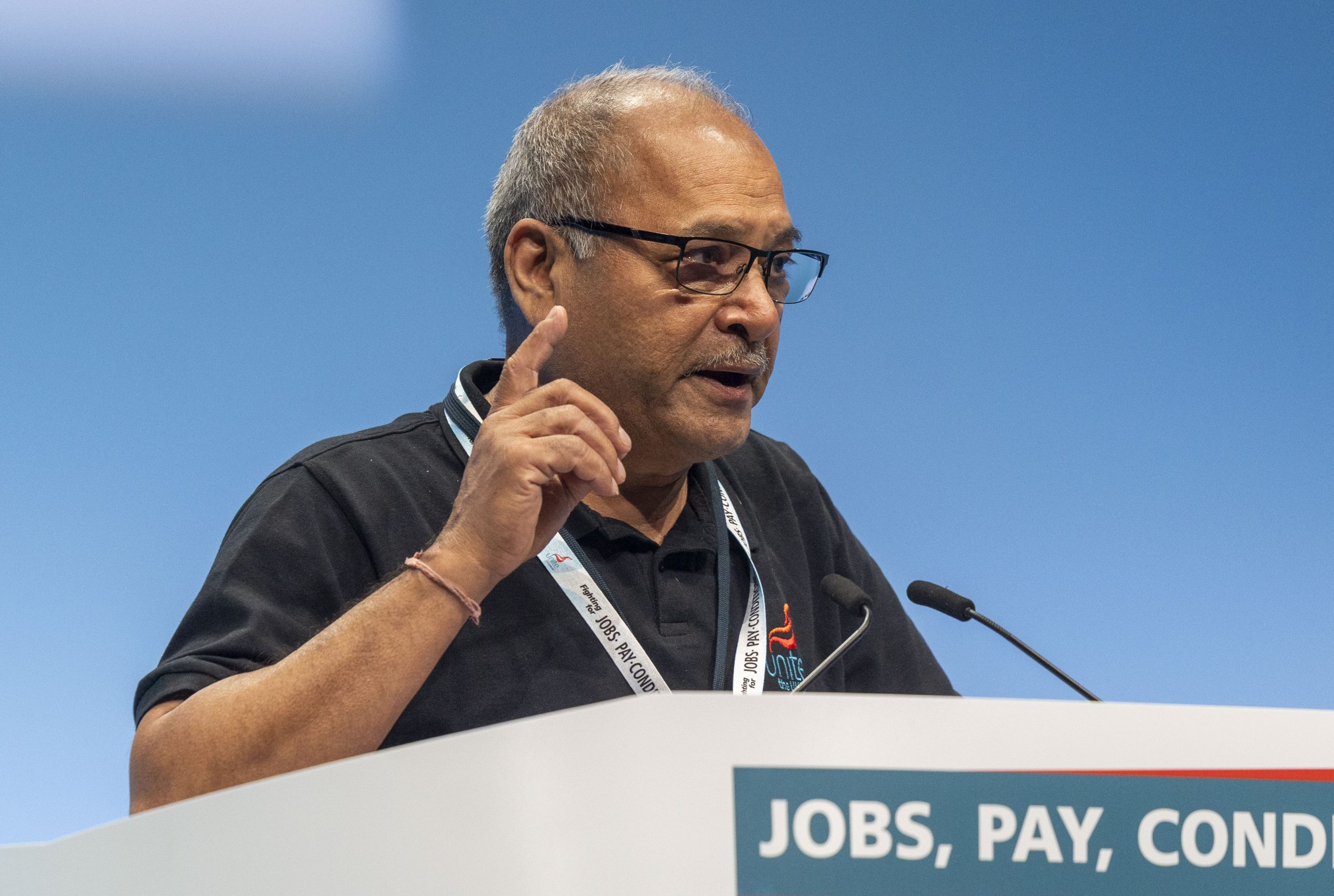Mental health first aiders
Debate on union’s policy clarification
Reading time: 4 min
A motion calling for clarification on the union’s policy of the creation of mental health first aiders by employers, was moved by North West’s region Martin Gleeson. However after much heartfelt debate, the motion was overturned by the conference.
Martyn Gwyther, spoke on behalf of the Executive Council, “to regretfully ask you to oppose this motion as it was not remitted, while also acknowledging the importance of this topic.”
Martyn said that while the motion, correctly drew out the severe limitations of the ‘mental health first aider’ model, by themselves “mental health first aiders are an inadequate response.”
He continued that “Some employers are offering so-called training through mere two-day courses – before throwing very well-intentioned people into a situation they will be totally unprepared to deal with. How on earth can a two-day course prepare you for the extreme pressures of life and death situations?
“How can such a course equip anyone to deal with issues of neurodiversity, which are also included in this motion?”
He said that the EC was concerned that mental health first aiders are being left to shoulder an impossible burden placed upon them by employers shirking their responsibilities.
This motion goes on to say that in contrast properly trained and supported union reps are a safer and more effective solution. The EC agreed with this but couldn’t agree to “publicly oppose Mental Health First Aiders” and “instead promote” the role of union reps – as there could be a danger of “letting employers off the hook.”
He concluded, “While union reps will always be frontline support, our role is to collectively tackle the root causes of mental health problems in the workplace. That cannot be undermined by employers seeking to outsource their responsibilities to our reps.” For that reason, he urged delegates to oppose the motion.
Sarah Krasewitz, Scotland, supporting said two days’ training was better than that received by GPs – they only had 1½.
David Bell, Scotland said a mental health first aider couldn’t cure mental health issues, just like a first aider couldn’t sew an arm back on. What was key for Unite was to remove the causes of stress and other triggers for mental ill-health. He urged delegates to oppose the motion.
Surender Kumar also opposed. He said it didn’t matter how much you trained a mental health first aider, they are still not medically trained and can’t deal with the many varieties of mental health. “You can give the wrong advice,” he said, “and you will never forgive yourself.”

Vivian Eze, London and Eastern supported, a first-time speaker, saying we needed trained reps for mental health issues. “That way we keep the best of both worlds.”
Jason Kirkham, a paramedic from the West Midlands, opposing said what was key was that reps signpost to the appropriate people if members had a problem. Vince Heaton, Wales, opposing said it was the employer’s duty of care and Mahf Kahn, East Midlands, said he was supporting because he was not convinced about the safety of leaving mental health responsibility up to the employer.
Martin Gleeson in his right of reply said that mental health first aiders were part of HR and that they were an HR initiation. But HR couldn’t be relied upon in the real world to deal with these issues it was an inadequate system. “The motion says that the union is best placed to deal with mental health issues,” he added, to no avail in the vote that followed.
By Amanda Campbell
Photos by Mark Thomas



